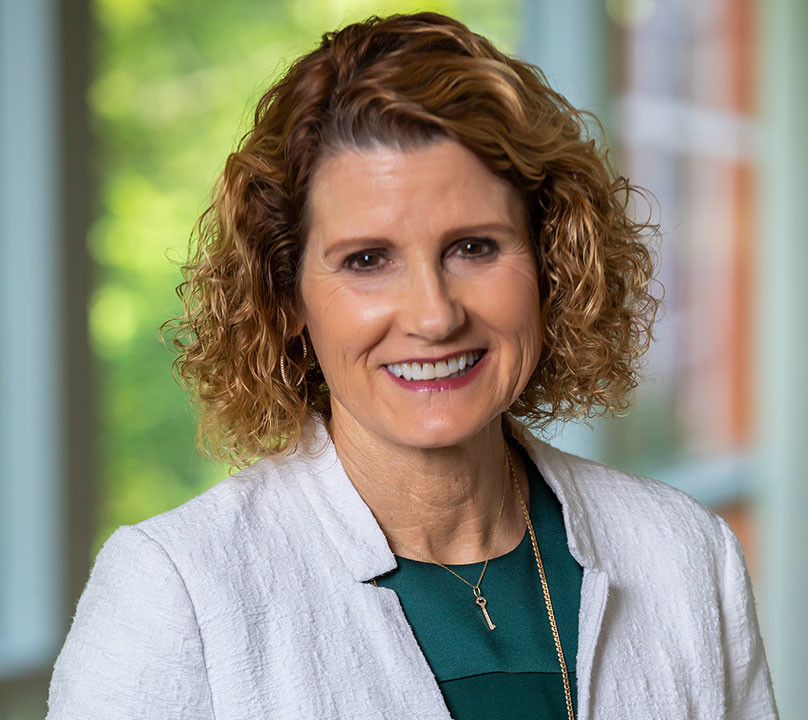By Kara Sherrer
You’re nearing the end of your undergraduate years (or maybe you’ve recently graduated), and you think you might like to start a career in marketing. However, you aren’t exactly sure how to go about this, so you’ve been looking into one-year Master of Marketing programs. But how do you know if this degree is right for you?
We talked with Suzanne Feinstein, Director of Admissions of the Vanderbilt Master of Marketing Program; Megan Nichols, Associate Director of the Career Management Center; and Cherrie Wilkerson, Assistant Dean for Young Professional Programs at Vanderbilt Business to discover the five reasons why students should consider a Master of Marketing degree.
You didn’t get a lot of marketing/business education in undergrad.
Maybe you didn’t realize that you were interested in marketing until your senior year of college, or perhaps your undergraduate institution didn’t offer a degree in business or marketing. Whatever your situation, you weren’t able to get a four-year undergrad degree in marketing, and you know that you need a little more education before you start trying to recruit for roles in the industry. A one-year master’s program can be the perfect way to get yourself up to speed on the marketing curriculum before you begin looking for a job. “We get them to a place where they can compete for the same jobs as undergraduate majors,” Feinstein said.
You want to dive deeper into marketing education.

Megan Nichols
On the other hand, maybe you were a marketing major or minor in undergrad — but you still feel like something is missing. You’d like to get more advanced knowledge on the most important topics in marketing today, especially analytics, and want to learn from influential business school professors while doing so. Some Master of Marketing programs, including the one at Vanderbilt Business, place students in MBA-level classes, even alongside MBAs. Not only do the Master of Marketing students get to learn from professors, they also see how their slightly older peers have built their career paths and get to draw on their experiences.
“Getting this world-class business education and taking those MBA-level classes and getting that exposure to the MBA students (is extremely helpful),” Nichols said. “Many of the MBAs had jobs that the Master of Marketing students want, so being able to connect with that internal network is huge.”
You want more personalized career support.
Few college students have any significant interaction with their undergraduate career centers, especially when it comes to more individualized marketing recruiting. Perhaps they had a few quick meetings to glance over their resumés and cover letters, but that’s often the extent of it. “The avenues to get (a job in marketing) are very unclear to the average undergraduate,” Wilkerson said.

Suzanne Feinstein
But business school career coaching happens at a whole other level, especially in smaller one-year master’s programs. In many Master of Marketing programs, coaches work one-on-one with students to figure out what kinds of jobs they want and help support them throughout the recruiting process, from preparing for interviews to negotiating offers. “Oftentimes for our students, recruiting is influenced by their personal needs and what they’re really looking for as their lifestyle,” Feinstein said.
You’re looking to expand your network.
Meeting current MBAs in class isn’t the only way Master of Marketing students expand their networks. They also get access to the entire alumni base of the business school, including other programs, which can not only help secure their first position often graduate school but also enhance their careers much further down the line. “That’s one thing that I think is really, really important when considering a Master of Marketing degree, is how that alumni network is going to help you,” Feinstein said. “We’ve got relationships all over the country. All over the world, honestly. You’re able to tap into the global network of help…There will be people who will help your career three or five years or 10 years down the road.”
You’d like help starting your career in marketing — but you’re willing to put in the work.

Cherrie Wilkerson
A one-year Master of Marketing can help the right candidates seriously leapfrog their career ahead several steps, but like any graduate program, it’s not an automatic guarantee of a dream job. The most successful graduates put a lot of work into the program, not only into classes or job interviews, but also into networking and interning during the school year. If this sounds like you, you could be a good fit for a Master of Marketing program. “Even though they’re looking at entry level roles, having internship experience, especially in the marketing function, is going to set them up in the best way possible for competing against other candidates,” Nichols said.
“Let us open up your options for you…it can be tough to find that job and to qualify for it,” Wilkerson added. “Let us enlarge your perspective of what’s possible in marketing, and give you the career services to send you on the way.”
To learn more about the Master of Marketing at Vanderbilt Business, visit the program page or request information.